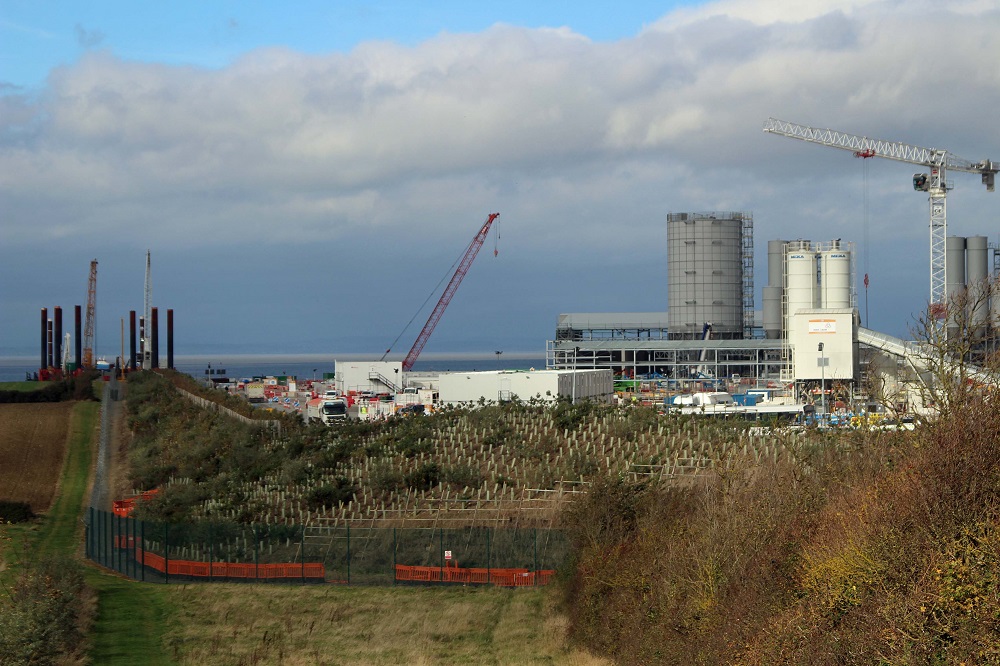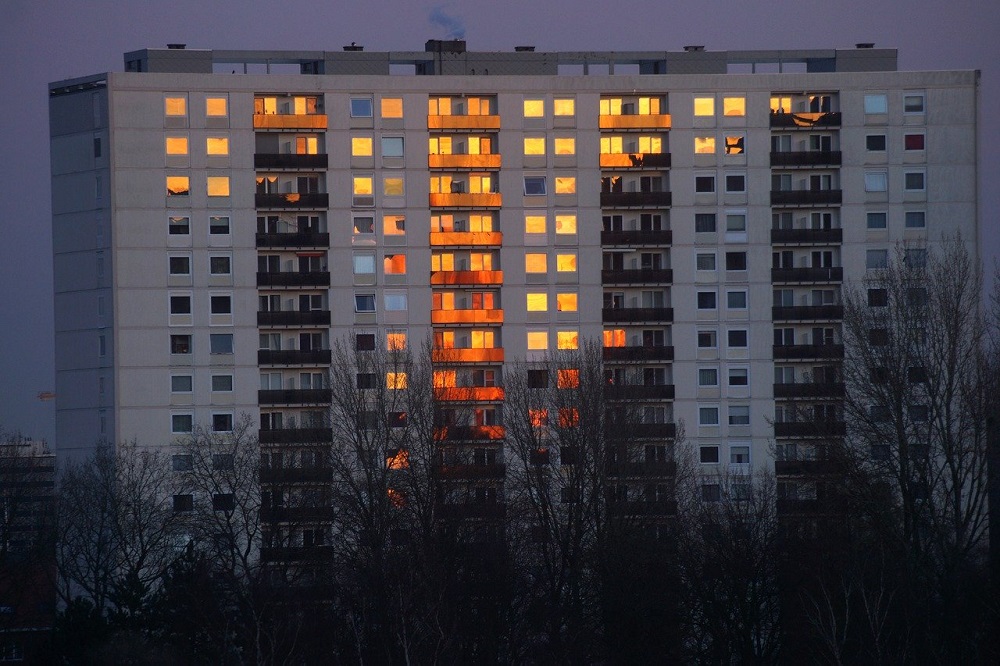News in brief: No let-up in mud-dump campaign as new Somerset site is considered

Campaigners against proposals for mud dredged from the site of a former nuclear power station in Somerset to be dumped off the coast of Cardiff, say they will continue their opposition despite reports that another location is also now being considered for disposing of the waste.
Last February EDF Energy applied to National Resources Wales for a licence to dump 800,0000 tonnes of mud dredged as part of building work for the Hinkley C plant that is being built on the site of the disused Hinkley Point A facility.
Two years ago, EDF were given permission to dump 300,000 tonnes of mud from the site off the Cardiff coast, despite protests and following a Senedd debate.
A petition against the latest proposals received over 10,000 signatures and triggered another debate in the Senedd in October.
EDF Energy are due to restart dredging as part of works to install cooling water intakes in the Bristol Channel and has confirmed alongside the application to NRW it has also applied to the Marine Management Organisation for disposal at the Portishead licensed disposal site in Somerset.
The company also says that either the site off Cardiff or the Portishead site will be used for the entirety of the disposal.
Contamination
GeigerBay, a coalition of scientists, experts, individuals and organisations formed to oppose the plans say there is evidence of plutonium contamination in the mud but EDF say: “The sediment is typical of sediment found elsewhere in the Bristol Channel, and under UK law it is not radioactive.”
Super Furry Animals musician and campaigner Cian Ciaran said: “If indeed they do intend to switch sites nothing in our messaging or opposition changes and obviously, anything we can share with those on the English side of the channel in information and resources then we will.”
“We don’t see that the radiological aspect would be much altered and from the marine pollution science point of view, anywhere in the Bristol Channel is bad news.
“Due to residual water body movements anything that’s in the water column on the English side is eventually going to contribute to the water column on the Welsh side.”

Plaid Cymru call for answers over vaccine deployment
Adam Price MS, Leader of Plaid Cymru, has called on the government to explain why Wales has vaccinated less people than other UK nations, and says it needs to disclose “concrete detail” of proposals to ramp up distribution of the COVID-19 jab.
Yesterday, health minister Vaughan Gething revealed the government’s plan to deploy the vaccine across the country and confirmed 86,000 people have been inoculated since the vaccine was launched a month ago, a smaller proportion of the population than have received the vaccine so far in Scotland, Northern Ireland and England.
Mr Gething said in total, around 2.5m people throughout Wales could be offered Covid vaccines by September and by mid-February all care home residents and staff, frontline health and social care staff, everyone over 70 and everyone who is clinically extremely vulnerable will have been offered a vaccination.
“The announcement of the vaccine deployment plan is a positive step, and it’s something that Plaid Cymru has long been calling for,” Mr Price said.
‘Marathon’
“We now need a real step up in terms of pace. We’ve been told this is a marathon, not a sprint, but that diminishes the urgency that is needed right now. The Welsh Government has admitted there is a gap – they now need to tell us what they’re going to do to close this gap between Wales and the other UK nations.
“The plan does not yet tell us how government is going to get from 86,000 people being vaccinated in 1 month, to 1.6m people being vaccinated ‘by Spring’ – this concrete detail is needed for any good roadmap.
“There are also unanswered questions about why the response in Wales has been different to the rest of the UK, and what lessons have been learnt. We know that Wales has a higher proportion of people in the higher priority groups, yet we’re only getting a population share.
“We have to outpace the virus and to do that we need to be able to see the road along which we are travelling.”
A further 16 people have died due to COVID-19 and 1,332 new positive tests for the virus have been reported by Public Health Wales.
Overall. total number of deaths in Wales since the start of the pandemic stands at 3,997.
PHW also confirmed a total of 91,238 people in Wales have now received a first does of a vaccine against the virus, up from 86,039 yesterday.
Wrexham recorded 140 new cases in the last 24 hours, followed by Cardiff with 131 and Rhondda Cynon Taf with 110.
Wrexham has the highest weekly case rate in Wales at 853.2 cases per 100,000 people and the highest weekly positive test proportion at 29.7% per 100,000 tests.

£2 billion pension fund reduces equity carbon footprint
Richard Youle, local democracy reporter
A public sector pension fund worth more than £2 billion is to move a chunk of its investments into low-carbon products.
Members of the Dyfed Pension Fund committee approved a recommendation to allocate assets to a new product which will screen out companies with exposure to fossil fuel reserves and coal for power stations.
It will also increase its existing allocation to a separate low-carbon fund.
The committee was told that taking these measures would reduce the carbon footprint of Dyfed Pension Fund’s total equity – or share – holdings by around 16%, and that such holdings accounted for 72% of the fund’s total value.
The money for these allocations will come from existing assets held by the fund, which is administered by Carmarthenshire Council and has 66 employer organisations.
After agreeing unanimously to the recommendations, Chris Moore, Carmarthenshire Council’s director of corporate services, said: “I think this is quite a substantive move forward and is going in the right direction, not only in terms of ensuring that we have still got diversification but also ensuring that we actually respond to the low-carbon objective of this fund and to reduce our investment in fossil fuel-related items.”
Dyfed Pension Fund adviser Adrian Brown said there was more it could do on the low-carbon objective, but added: “I would stress that it’s important to do this thoughtfully and gradually, not least because of the volatility of relative price movements.”
Cllr Deryk Cundy asked about the impact of Joe Biden being elected as the United States president on this area.
Mr Brown said investors would have already priced in the Democrat’s greener policies, and that “the pain” was likely to be felt in high yield US shale oil products.
Anthony Parnell, Carmarthenshire’s treasury and pension investments manager, said the decisions taken by the pension committee were a step in a journey to review low-carbon and fossil fuel investments.
“To get further along that journey we need to do due diligence again,” he said. “So it’s a good step forward but these things do take time.”

New building safety plans for Wales announced
The government has unveiled new building safety plans, which it claims would give Wales, “the most comprehensive building safety regime in the UK and provide residents with a stronger voice on matters affecting their homes.”
Proposals in the Building Safety White Paper cover all multi-occupied residential buildings include:
- Clear lines of accountability, creating dutyholders with the appropriate knowledge and expertise, who will be legally responsible for safety and reducing fire risk throughout the lifecycle of the building.
- An enhanced programme of checks during construction to support evidence of compliance.
- The creation of two risk categories, with a ‘Golden Thread’ of up-to-date information about design, construction and ongoing maintenance required for all buildings of 18 metres or over.
- A duty for building to contain the capacity to contain a fire where it originates for long enough to allow it to be extinguished.
- A wholly new means for identifying and reducing risks of fire in blocks of flats. This will be easier for landlords and others to understand and apply, and more effective in reducing risks to residents.
- A process for residents to raise building safety concerns.
- A single process for escalating concerns to the regulator.
The Welsh Government has already taken a number of steps to improve building safety. Last January, following a change to regulations, the use of combustible materials in cladding systems was banned in Wales. This applied to all new residential buildings (flats, student accommodation and care homes) and hospitals over 18m in height.
Housing Minister Julie James said: “In the wake of the tragedy at Grenfell Tower, the Welsh Government has already taken action to make buildings safer for residents. It’s always been clear, however, that far more fundamental changes were needed to improve building safety in the round.
“That’s why we are proposing improvements to every stage of the life-cycle of multi-occupied buildings, from design, through construction and into occupation, so new buildings are safe for each and every resident.
“Most importantly, these proposals are designed to empower residents by giving them far more say in the matters that affect their homes and providing clear channels for them to speak up and alert those responsible when things go wrong. Those who own and manage our buildings must live up to their obligations to put things right.
“These proposals, if passed into law in the next Senedd term, will create a new and much improved regime which puts the safety of residents first.”

Support our Nation today
For the price of a cup of coffee a month you can help us create an independent, not-for-profit, national news service for the people of Wales, by the people of Wales.





